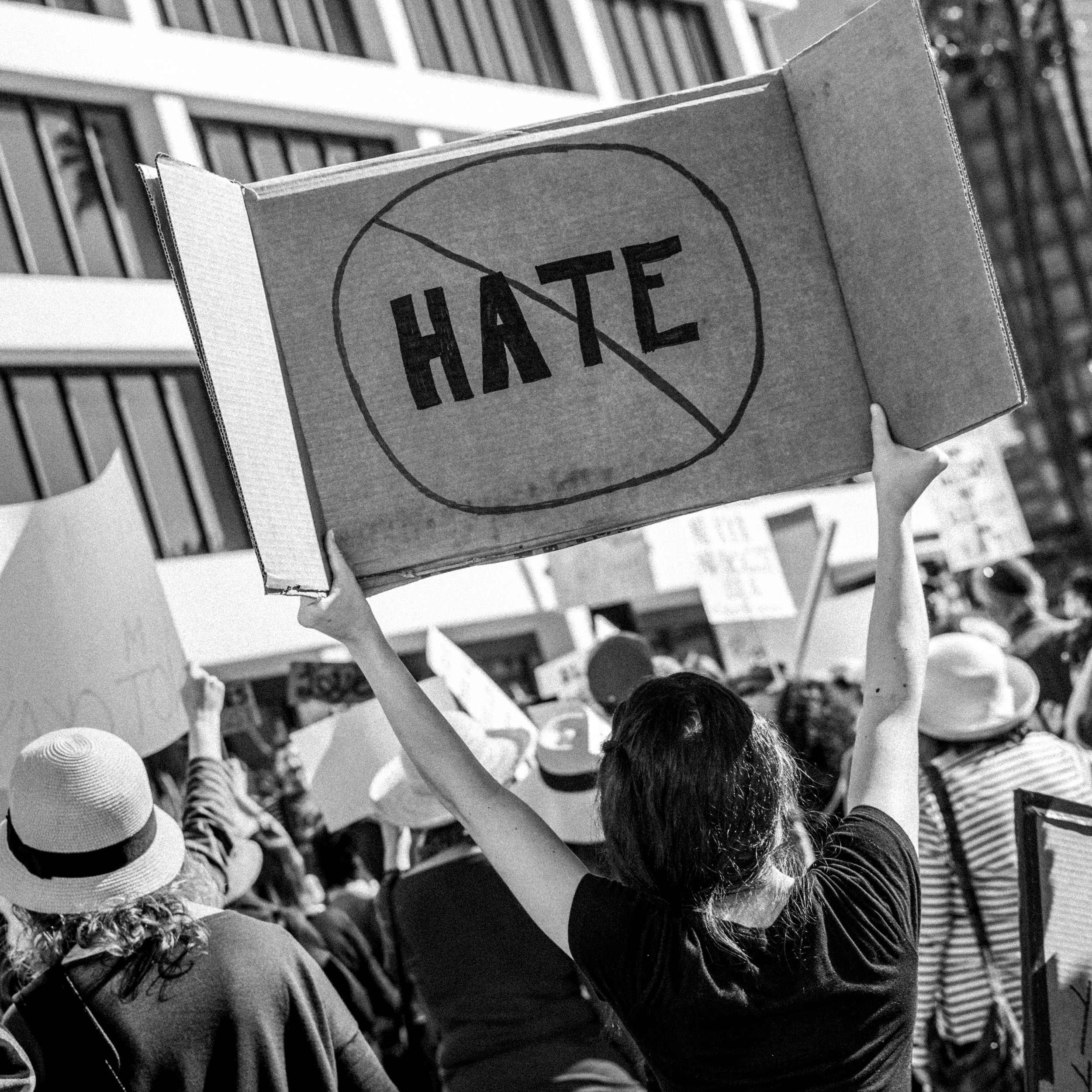
HCPA
What is HCPA?
The Hate Crimes Prevention Act (HCPA) was signed into law by the 111th Congress as part of the National Defense Authorization Act for 2010. HCPA strengthened prior federal hate crimes not just by including crimes motivated by a victim's actual or perceived gender, sexual orientation, gender identity, or disability, but also by dropping the requirement that victims be engaging in protected activity.
Section 4712 of HCPA, known as the Soldiers Amendment, created hate crimes protections for military families. Provisions of the Act all went into Title 18 of the US Code (“Crimes & Criminal Procedures”), but only some were placed within Chapter 13 (“Civil Rights”). The Soldiers Amendment went to Chapter 67 (“Military & Navy”), becoming 18 U.S.C. § 1389 upon its final passage on October 28, 2009.
What’s wrong with the Soldiers Amendment?
HCPA’s military protections are ineffective due to several shortcomings;
Servicemembers and their families cannot report hate crimes because HCPA's enforcement agency, the Department of Justice, seems to be unaware of the protections extended to our military.
The DoJ’s Hate Crimes taskforce and Servicemembers & Veterans Initiative do not mention 18 U.S.C. §1389.
Unlike other discrimination protections, perception of the animating feature is not legally actionable under the HCPA, placing the burden upon the victim and their membership in a class rather than the perpetrator’s criminal intent.
Compare 18 USC §1389(a) to 18 USC §249(a)(1) and (a)(2)
HCPA is the only statute of its kind that expires its own protections, with the language protecting soldiers worded so poorly as to effectively undermine any force of law it otherwise might have.
Read 18 U.S.C. §1389(c)(3)(B)
How can we fix the Soldiers Amendment?
In July 2009, while HCPA was being debated in the Senate then-Senator Jeff Sessions (R-AL) introduced what he called the "Soldiers Amendment.” The explicit purpose of his amendment was to "create a new Federal crime which puts members of the U.S. military on equal footing with other protected classes.” The amendment passed unanimously on the Senate floor, with Senator Carl Levin (D-MI) adding “we should do everything we can when it comes to our criminal laws to protect [our men and women in uniform] and their families.” The amendment became 18 U.S.C. § 1389, but it has never appeared on the Department of Justice’s website, to include the 636 days Jeff Sessions spent as Attorney General. Fixing HCPA will require lawmakers to fulfill its entire legislative intent and make sure executive agencies provide their statutory obligation of adequate enforcement.
Fixing HCPA will require updates to 18 U.S.C. § 1389 to make sure its legislative intent is fulfilled. “Members of the U.S. military” includes all current and former members of the Armed Forces, including all their Reserve components and any National Guard personnel activated for national service. Agencies charged with enforcing the law must also create secure means of reporting by victims as well as collect and distribute anonymized data that the public can use to better understand the problem.
Frequently Asked Questions
-
On Veterans Day in 2015, an Ohio hospital worker with no prior criminal record was arrested and charged under 18 U.S.C. § 1389 for publishing personally identifying information of about 100 servicemembers to social media and calling for their murder. Several individuals named in the post took steps to protect themselves after their addresses were posted to social media byTerrence J. McNeil, an American citizen who professed support for ISIS. There is no record of any servicemember or their immediate family suffering injury as a result of this leak, but that may be due to the lack of any means of reporting by the Department of Justice.
This is an extreme case, but it is also the only time § 1389 has been enforced, ever, and it is the only example we have of what a hate crime against soldiers and veterans might look like. Unlike the rest of HCPA, the Soldiers Amendment does not benefit from data collection requirements that allow hate crimes to be publicly known and professionally analyzed. There is no way to know for sure if hate crimes against our troops are actually happening without the data that HCPA is meant to provide. The truth is that they may be happening but not being reported, since the Department of Justice provides no means for military families to do so.
-
This is a common concern, that the Soldiers Amendment protections were only intended for active and inactive service, not for any time a person spends as a veteran. It is not totally unfounded, as the wording of the law is imprecise, using “discharge” in a way that does not reflect careful attention to military status and organization. During an individual member’s service, they may be discharged several times, usually moments before (re)enlistment. According to 10 USC § 651(a), the legal obligation to military service does not expire until six or eight years from their initial entrance into the armed forces. In other words, a person remains a Servicemember even if they have been “discharged” from active or reserve duty. Some may not even be aware that they are still under contract with the military, that they may be a member of the Inactive Ready Reserve or similar component.
18 USC § 1389(a)(3)(B) defines "Armed Forces" by referring to 10 USC § 101, which appears in (a)(4); " The term 'armed forces' means the Army, Navy, Air Force, Marine Corps, and Coast Guard.” There is no language in the law that restricts jurisdiction to “regular” members (a term defined by 10 USC § 101(b)(12)), or that excludes “reserve” members (a term defined by 10 USC § 101(c)(6)). Therefore the statutory jurisdiction of 18 USC § 1389 includes regular and reserve military personnel. This aligns with how 10 USC § 651 defines service, meaning the five year extension provided by Soldiers Amendment extends five years after one’s legal obligation to military service ends (or five years after their discharge, should their service exceed the eight year minimum) . In other words, 18 USC § 1389 provides no less than thirteen years of protection from hate crimes;
-
HCPA does protect veterans, but the bill's language is worded so poorly that even active-status servicemembers may lose protection. The problem lies with its failure to distinguish between “discharge” and “release,” a technicality that could deny protection to enlisted or commissioned members of the Inactive Reserves in the last year or two of their eight-year Military Service Obligation. As it is currently worded, veterans receive some protection as “servicemembers” in the five years following their service. In all other laws, language is paramount, but the Soldiers Amendment has none of the precision needed for an enforceably federal statute.
But the reality is that military service is a matter of public information, and all citizens have a right to certain information about a veteran’s time in service. The saying “once a Marine, always a Marine” is actually effectively true - an individual’s status may change, but hateful animus is not so stable. Even if a person is no longer actively serving in the military, their vulnerability to hate crimes extends indefinitely beyond the arbitrary threshold of five years after discharge. For HCPA to fulfill its congressional intent, to provide any actionable protection for our troops, the five year restriction must fall.
-
The Soldiers Amendment was passed with the intention of making soldiers and veterans a protected class. Discreet characteristics like gender or race, sometimes called “passable” by activist circles, are not obvious and may only exist in the mind of a perpetrator. For unseen traits like these, deterrence is ineffective without creating protections for persons who are falsely perceived to be members of a protected class. This is why HCPA makes it so that criminality rests in the mind of the perpetrator; a crime occurs even if a victim is not a member of the protected class. To be effective, HCPA must exchange “on account of” in the Soldiers Amendment with “perceived or actual,” the same language protecting other subjects of HCPA. This will carry to effect of making it a crime to attack a civilian posing as a soldier or veteran, but it is a necessary element of deterring crimes against the most vulnerable members of military communities. A crime against a person known or believed to be a civilian, posing as a member of the military, would be a hate crime if animated by perceived or actual membership of a protected class.







